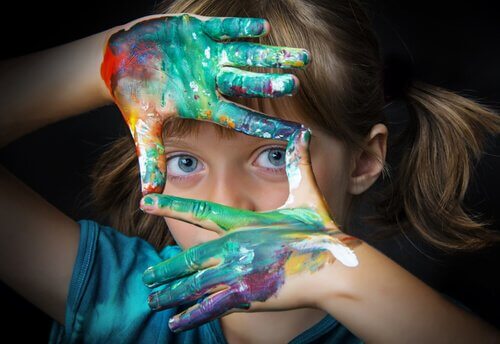Jean Piaget was a widely recognized constructivist psychologist in the fields of psychology and child learning. His studies and research have had a great influence on both evolutionary psychology and modern pedagogy. Piaget’s phrases are a clear example of his passion for the study of development.
Piaget had children, from whom he learned a lot, through a detailed observation of his growth, developed a theory about intelligence and established certain stages of children’s cognitive development.
- In this article.
- We selected 7 Piaget phrases that talk about the two topics I loved most: childhood and learning.
- Let’s go further.
“The main goal of education in schools should be to create men and women who can do new things, not just repeat what other generations have done; creative, inventive and discovering men and women who may be critical, control and not accept everything that is offered to them ?.
What’s the point of repeating the same things? Piaget criticizes the education system with this phrase. That’s something that could still be applied today. How many schools are creativity encouraged in? In very few, as most focus on a curriculum and evaluation of test results to determine student level.
Young people spend many hours sitting and bored listening to their teachers, the dynamics are the same as always. Exercise, study, and take the test. There is no learning, no criticism, no reasoning, no one questions anything. Is that really what we want?
“Does education, for most people, mean trying to make the child look like the typical adult in their society?But for me, does education mean making creators?
Since we were little, we’ve heard things like, stop jumping?or “behave like a little man. ” They don’t even let us be children. They push us to become, in a hurry, the stereotype of an adult in society that lives at high speed thanks to automation.
All this limits us, classifies us and prevents us from highlighting, as Piaget says, education should encourage creative, new and nonconformist adults, but do we observe the opposite every day?
“How can we, with our adult minds, know what will be interesting?Can you discover something new?”
It is one of Piaget’s phrases that most reflects his interest in the world of children and, above all, his great admiration for them. Piaget knew that, thanks to children, we can learn new things, even if we are not aware of it.
Children are not yet contaminated by society, they are free, creative, inventive and curious. But as we grow, we lose that interest in discovering the world and immersing ourselves in a series of paradigms that limit and slow us down, maybe we should learn a little bit from the little ones?
“What we want is for the teacher to stop being a speaker, satisfied with the transmission of solutions. Should your role be more like a mentoring and research stimulation initiative?
Many teachers come to classes, explain the subject, send the exercises home and move on to the next class. This is not the real role of a teacher. Your role should be more active and you should be more involved in encouraging your students.
Piaget says this very correctly, explaining that the teacher must promote the initiative of his students and increase his curiosity, this is how true learning is achieved.
“Playing is a childhood job
This is another Piaget phrase that refers to children and the importance of gambling for children’s development, so it is so important to promote it to minors, rather than imposing restrictions, gambling is precisely child labour. A whole world of possibilities begins to appear both individually and socially.
“When you teach a child something, it takes away from him forever the opportunity to find out for himself.
Adults already know everything, but children don’t, so you don’t have to explain everything to them, we have to give ourselves room for manoeuvre so they can discover the world for themselves, ask questions and experiment in their own way. .
“If you want to be creative, stay partly like a child, with the creativity and inventiveness that characterizes children before adult society distorts them. “
Do you want to boost your creativity?Do you want to increase your creativity? Be a little like a child. Because they are free and their thoughts are not distorted or contaminated by adult society.
With the latter of Piaget’s sentences we can think about the number of times we judge and how we limit ourselves to that. Why do we miss curiosity? Perhaps we should look back at the little ones and start unlearning what we have learned and limit ourselves so much.
Each of Piaget’s phrases is a reflection of his gaze, his way of perceiving the world and, more precisely, of children. A series of criticisms that don’t seem solved today. We hope you liked it and tell us which one made the most impression on you, although it is possible to learn a very wise lesson from each other.

